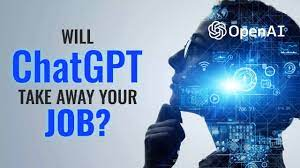Is ChatGPT a Threat for Employees?
Is ChatGPT a Threat for Employees?
In the era of technological advancements, artificial intelligence (AI) has become an integral part of many industries, revolutionizing the way tasks are performed and businesses operate. One such AI model that has gained significant attention is ChatGPT, a language generation model developed by OpenAI. While ChatGPT brings about numerous benefits, there is a growing concern among employees about its potential threat to job security.
Understanding ChatGPT
ChatGPT is an AI model trained to generate human-like text based on the input provided to it. It has found applications in various domains, including customer service, content creation, and even personal assistance.
By analyzing vast amounts of text data, ChatGPT can mimic human conversation with remarkable accuracy, making it a versatile tool for numerous tasks.
Impact on Job Market
One of the primary concerns regarding ChatGPT is its potential to automate tasks traditionally performed by humans.
As ChatGPT becomes more advanced, it could lead to the displacement of certain job roles, particularly those that involve repetitive or routine tasks.
This automation may pose a threat to job security for individuals working in industries heavily reliant on manual labor or repetitive processes.
Advantages of ChatGPT
However, it's essential to acknowledge the advantages that ChatGPT brings to the table.
By automating repetitive tasks, ChatGPT can significantly improve efficiency and productivity. For businesses, this means cost savings and faster turnaround times, ultimately enhancing overall competitiveness.
Challenges Posed by ChatGPT
Despite its benefits, the widespread adoption of ChatGPT also presents significant challenges.
The displacement of certain job roles could lead to unemployment and economic instability in the short term. Additionally, there's a growing concern about the ethical implications of AI technology and its impact on society.
Ethical Considerations
As AI technology continues to advance, it's crucial to address ethical considerations surrounding its development and deployment.
This includes ensuring transparency, fairness, and accountability in AI systems to mitigate potential negative effects on individuals and communities.
Future Prospects
Looking ahead, the future of ChatGPT and AI in general remains promising. With ongoing advancements in machine learning and natural language processing, AI models like ChatGPT are expected to become even more sophisticated, opening up new possibilities for innovation and automation.
Employee Perspective
From an employee perspective, the rise of ChatGPT raises valid concerns about job security and career prospects. Many workers fear being replaced by AI-driven systems and worry about their ability to adapt to rapidly changing job market dynamics.
Employer Perspective
On the other hand, employers see ChatGPT as a valuable tool for streamlining operations and improving customer experiences.
However, businesses need to prioritize employee well-being and invest in training and re-skilling programs to ensure a smooth transition to an AI-driven workforce.
Conclusion
While ChatGPT offers immense potential for businesses to optimize their operations and enhance customer interactions, it also poses challenges for employees in terms of job security and career advancement. To address these challenges effectively, stakeholders must work together to foster a responsible approach to AI adoption that balances technological innovation with ethical considerations and human welfare.
FAQs
Is ChatGPT capable of replacing human workers entirely?
- While ChatGPT can automate certain tasks, it's unlikely to replace human workers entirely. Human judgment, creativity, and empathy remain irreplaceable in many domains.
What steps can employees take to adapt to the rise of AI technology?
- Employees can stay relevant in the job market by investing in continuous learning, developing new skills, and staying updated on industry trends.
How can employers mitigate the negative impact of AI on their workforce?
- Employers can implement re-skilling programs, provide opportunities for upskilling, and prioritize human-centric approaches to technology integration.
What role does regulation play in addressing the ethical implications of AI?
- Regulation plays a crucial role in ensuring that AI systems are developed and deployed responsibly, with considerations for fairness, transparency, and accountability.
What are some potential benefits of AI for employees?
- AI can automate mundane tasks, freeing up time for employees to focus on more meaningful and strategic aspects of their work.
- Additionally, AI-driven insights can facilitate decision-making and improve job satisfaction.






















Post a Comment